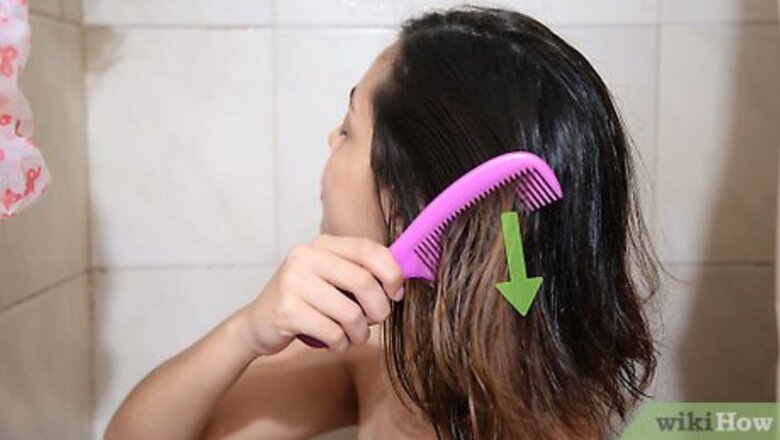
views
- Detangle your hair in the shower with a wide-tooth comb first to avoid damaging your hair.
- Blow dry your hair while combing with the round brush to dry it.
- You can let your hair air dry after combing with a round brush if you prefer.
- Section your hair before drying it with the brush to style your hair while doing this.
Detangling and Sectioning Your Hair
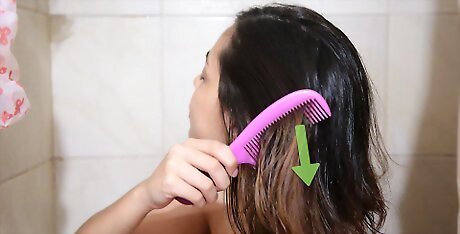
Brush your hair in the shower with a wide-tooth comb. You don't want to use a round brush to detangle. It's better to start with mostly detangled hair. Add extra conditioner to your hair, a small dollop, and then work up from the bottom with a wide-tooth comb, working out the tangles as you go. Rinse the conditioner out when you're done.
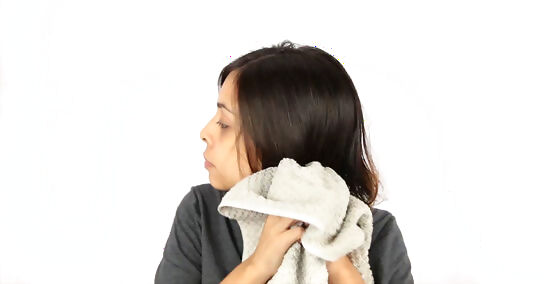
Remove excess water from your hair. When you get out of the shower, pat your hair dry with a towel. Don't rub it, as that can create more tangles. Hold the towel on both sides of a section of your hair and pat inward.
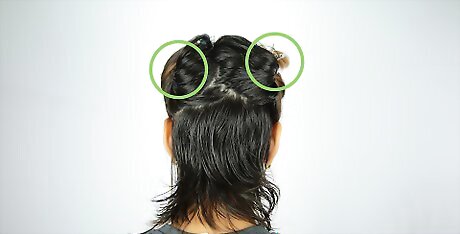
Divide the hair into sections. To blow dry it properly, you need to go section by section with the blow dryer. The best way to approach this task is to isolate an area by clipping back the rest of your hair with darby clips. Section off your bangs separately. Divide your hair into 4 main sections. Divide down the middle from nose to the back of your head first, then divide each side into 2 sections, using your ears s dividers.
Drying Your Hair Partially
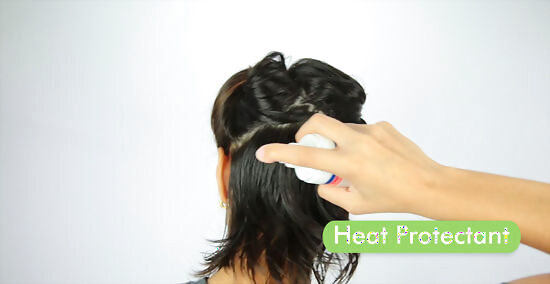
Apply a heat-protectant product to your hair. Before you start blow drying, you need to apply a heat-protectant product to your hair to prevent damage. Look for a heat-protect product like mousse, serum, or leave-in conditioner. Work a small amount through your hair, then comb through your tresses to distribute the product evenly.
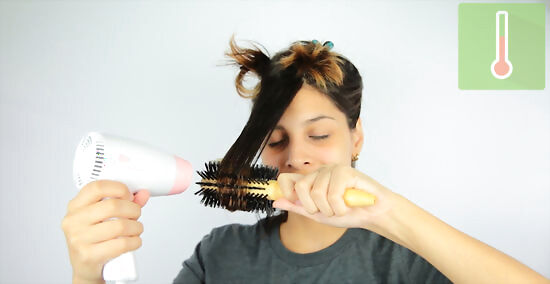
Blow dry your bangs with the round brush, if applicable. Start with blow drying your bangs, if you have them. If they dry without assistance, they can set in an unflattering wave or cowlick. Go ahead and use the round brush. Move the bangs back and forth with the brush as you dry your bangs. It's best to set your hair dryer to medium throughout the process. If you work with high heat, you could damage your hair. If your blow dryer only has low and high, use low.
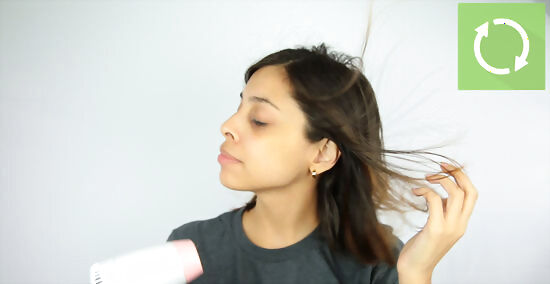
Blow dry the rest of the hair without the round brush. Work around your head, doing a rough blow dry. You don't need much technique here, except you should keep the blow dryer moving. Don't let it sit on 1 part of your hair, as that can lead to too much heat, damaging your hair.
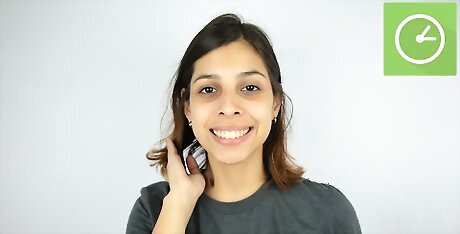
Let your hair air dry as an alternative. If you'd rather spend time doing something else instead of blow drying your hair, you can let it air dry instead. When you get out of the shower, pat your hair dry without rubbing it, and then let it dry. You don't need to comb it or use the round brush on it at all. Just make sure you don't let it dry all the way.
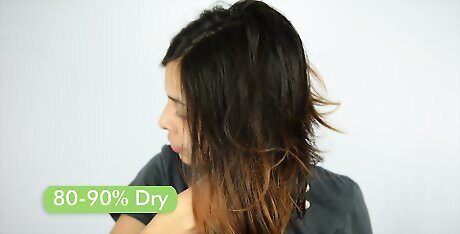
Stop when your hair is about 80-90% dry. Once your hair reaches this stage, it's time to add in the round brush. Therefore, hold off on drying more until you get your round brush set. If you try to use the round brush when your hair is still really wet, not only will it take a long time but the end result may not be what you were hoping for.
Using the Round Brush
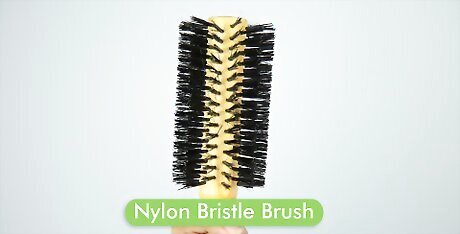
Pick a nylon and boar brush. The metal brushes may look fancy, but they're not ideal for blow drying your hair. They heat up more than the nylon variety, making your hair dry too fast. Stick to brushes with nylon and boar bristles. It can help to have more than 1 brush, so you can leave 1 in your hair to help create the curl while you move on to a new section. You may also want to have brushes in a variety of sizes. For instance, a smaller brush might work best for shorter layers while a larger brush would be beneficial for longer layers.
Pull a "faux-hawk" out at the top. Section out the top of your hair, using the round brush to lift it up. Blow dry at the roots near the top of the head until they dry. This approach helps give your hair volume.
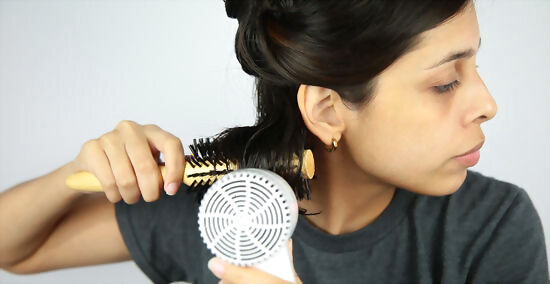
Start with a single section of your hair. Pick up just enough hair to cover the width of your brush, starting on 1 side of your head. Run the hair through it, moving from top to bottom. As you do, use the hair dryer to direct hot air towards the hair. Stay about 5 inches (13 cm) from your hair.
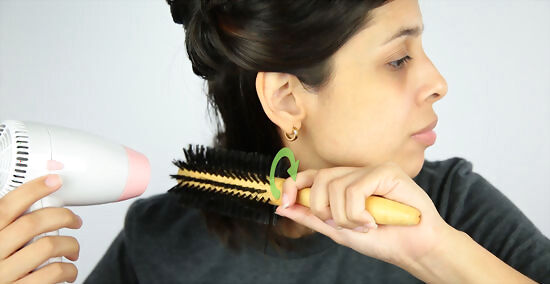
Change the angle of the brush and the blow dryer. To create volume and wave, you can't keep the brush and blow dryer at the same angle all the time. As you move around your head, turn the brush at different angles, and make sure you're blowing your hair both vertically and horizontally from different angles.
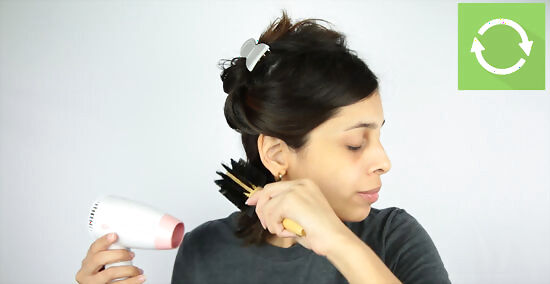
Keep going until the section is dry. Repeat these motions over and over until this section is completely dry. Each section should be 100% dry before you move on to the next. If you leave moisture in it, it will fall flat later.
Finishing up the Sections
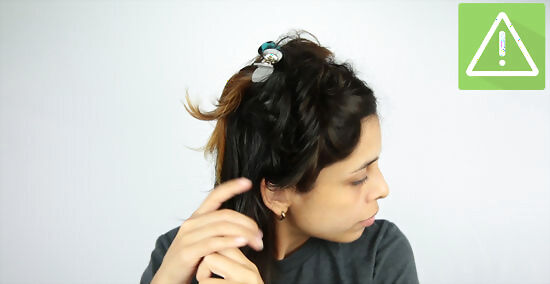
Work around your head in small sections. Go around your head, working in small sections. Make sure each section is dry before trying to set the curl at the bottom and moving on to the next section.
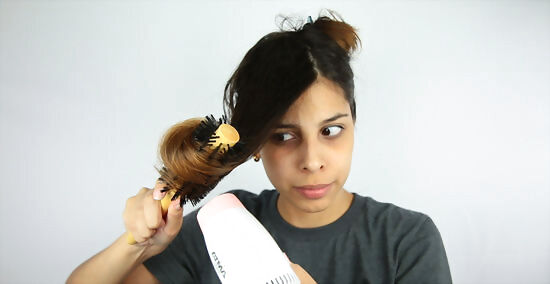
Create curl at the bottom by twisting it the way you want. You can use the brush to twist the hair inward, outward, or even vertically in a slight curl. Then, blast it with some cool air for a few seconds to help set it. You can leave the brush in place while you work on the next section, which helps set the curl; this is where a second brush comes in handy. Remove it when you need a brush for the section after that.
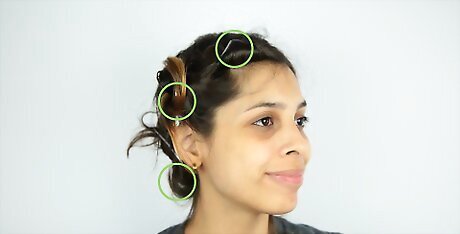
Pin the sections in place. After you do each section, clip it down with a darby clip. That helps the curl you've created stay intact while you work on the rest of your hair.
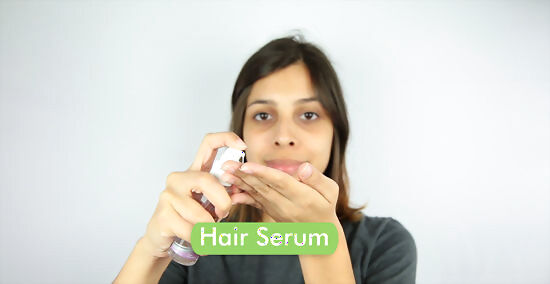
Contain flyaways with serum. Once your hair is dry, pull the clips out gently. Use a tiny dab of hair serum to smooth out any flyways, creating a professional-looking finish. Use cream to smooth hair or hairspray to help set the shape.












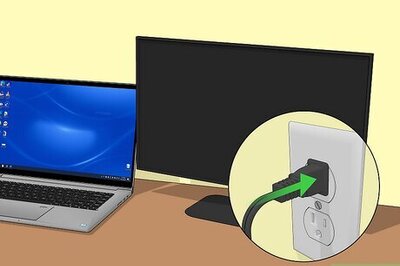
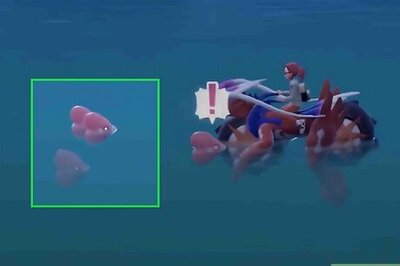
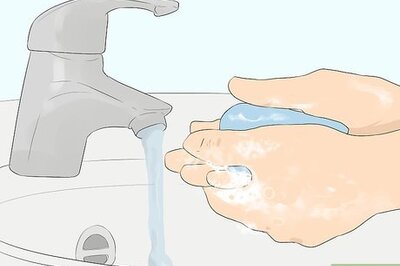
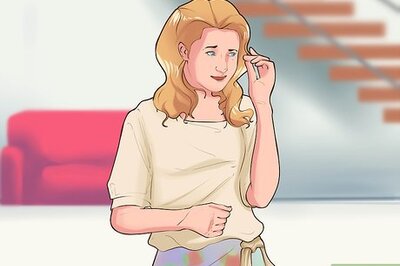
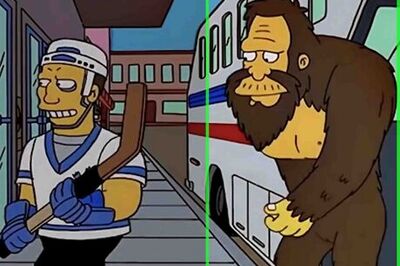
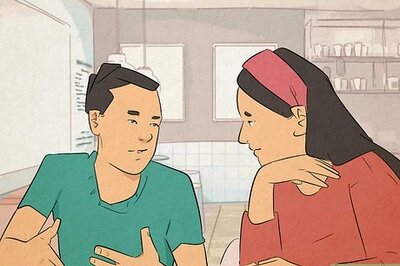

Comments
0 comment